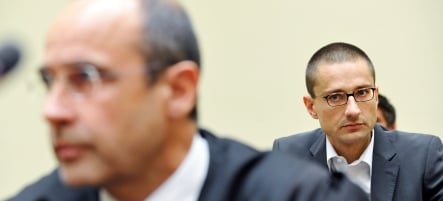The man, named only as Benedikt T., repeatedly interrupted the judge in Munich’s criminal court, shouting, “shame on you” as the sentence was read out.
His friends in the public gallery also helped to create chaos, shouting, “this is a dictatorship” and “we are the voice of the people” before walking out slamming the doors behind them.
The judge found Benedikt T. guilty of killing his 59-year-old aunt, whose millions were made in the car park business, by hitting her on the head at least 24 times.
He had been financially dependent on her, as she had happily paid for him to study law. But after he broke off his studies he feared she might cut him out of her will, the court heard.
Rather than risk this, he pretended to her and other members of the family that he was still studying, even faking his first state exams and faking preparations for a second round. But he became increasingly worried that this fakery would be discovered and decided to kill her to stop her finding out.
The judge concluded that he waited for her to leave her flat in May 2006, and attacked her, hitting her with a weapon that has still not been found.
One point of argument during the case concerned which hand he used for the attack – he is left handed, but forensic scientists said the weapon had been held in a right hand.
The judge said Benedikt T. had used his left hand to hold the door to the flat open and was therefore forced to use his right to hit her, an explanation challenged by his lawyer Peter Witting.
He said he would appeal the verdict.




 Please whitelist us to continue reading.
Please whitelist us to continue reading.